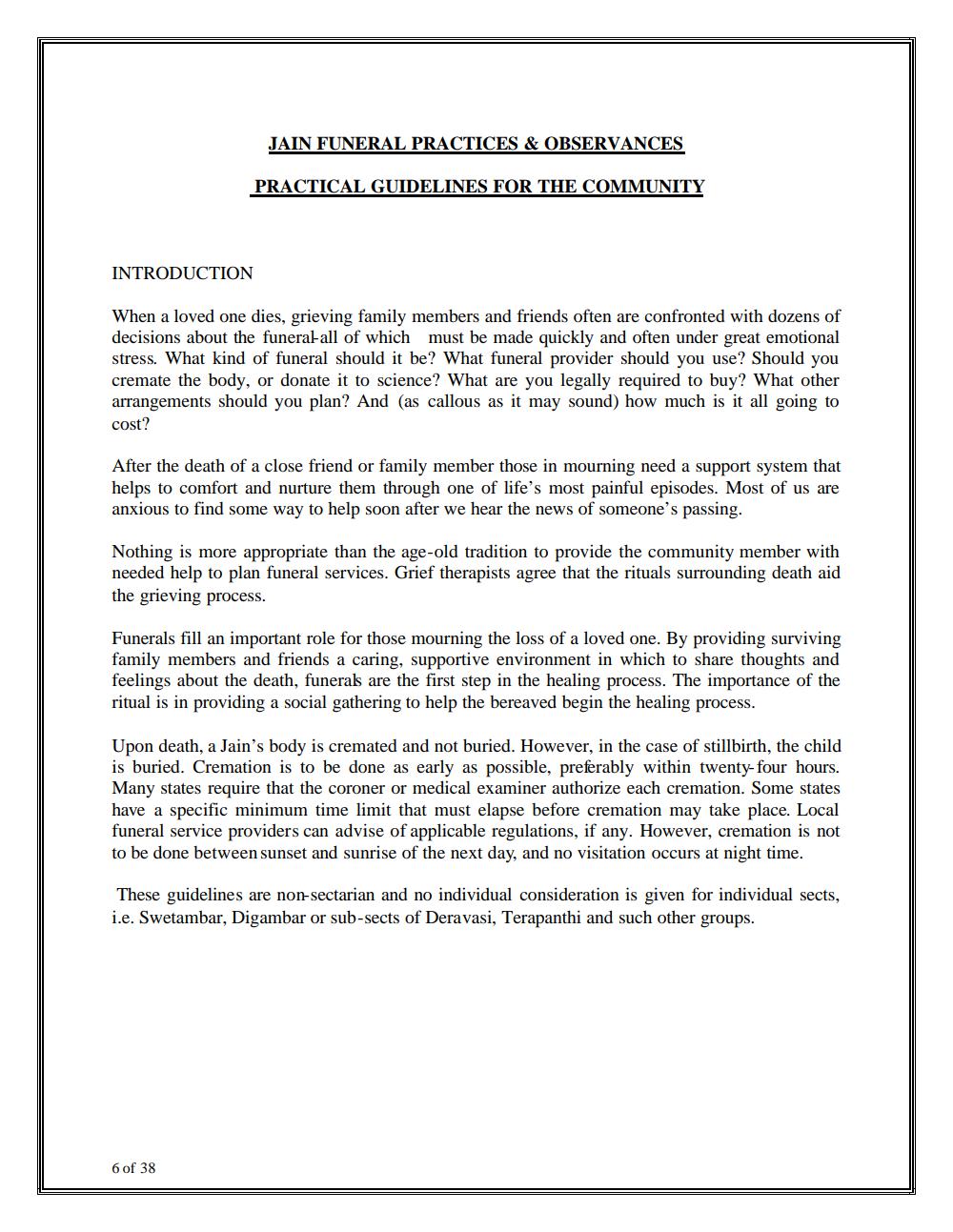Book Title: Jain Funeral Procedures Author(s): Tansukh J Salgia Publisher: Tansukh J Salgia View full book textPage 6
________________ JAIN FUNERAL PRACTICES & OBSERVANCES PRACTICAL GUIDELINES FOR THE COMMUNITY INTRODUCTION When a loved one dies, grieving family members and friends often are confronted with dozens of decisions about the funeral all of which must be made quickly and often under great emotional stress. What kind of funeral should it be? What funeral provider should you use? Should you cremate the body, or donate it to science? What are you legally required to buy? What other arrangements should you plan? And (as callous as it may sound) how much is it all going to cost? After the death of a close friend or family member those in mourning need a support system that helps to comfort and nurture them through one of life's most painful episodes. Most of us are anxious to find some way to help soon after we hear the news of someone's passing. Nothing is more appropriate than the age-old tradition to provide the community member with needed help to plan funeral services. Grief therapists agree that the rituals surrounding death aid the grieving process. Funerals fill an important role for those mourning the loss of a loved one. By providing surviving family members and friends a caring, supportive environment in which to share thoughts and feelings about the death, funerals are the first step in the healing process. The importance of the ritual is in providing a social gathering to help the bereaved begin the healing process. Upon death, a Jain's body is cremated and not buried. However, in the case of stillbirth, the child is buried. Cremation is to be done as early as possible, preferably within twenty-four hours. Many states require that the coroner or medical examiner authorize each cremation. Some states have a specific minimum time limit that must elapse before cremation may take place. Local funeral service providers can advise of applicable regulations, if any. However, cremation is not to be done between sunset and sunrise of the next day, and no visitation occurs at night time. These guidelines are non-sectarian and no individual consideration is given for individual sects, i.e. Swetambar, Digambar or sub-sects of Deravasi, Terapanthi and such other groups. 6 of 38Page Navigation
1 ... 4 5 6 7 8 9 10 11 12 13 14 15 16 17 18 19 20 21 22 23 24 25 26 27 28 29 30 31 32 33 34 35 36 37 38
